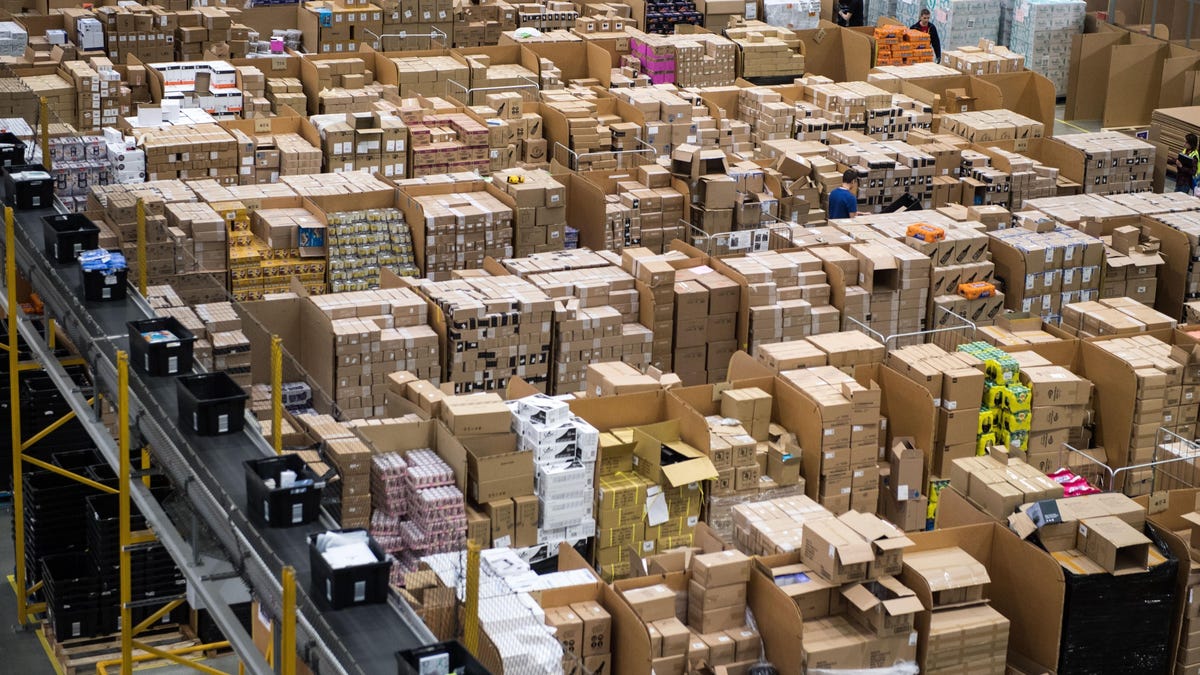California Advances Historic Bill Targeting Amazon's Punishing Warehouse Quotas - 4 minutes read

On Wednesday, California lawmakers advanced a groundbreaking legislation that could finally give Amazon warehouse workers the power to push back against some of the draconian conditions imposed on them. Assembly Bill 701 (AB 701), which passed the Senate this week and is the first of its kind in the U.S., specifically states that a worker’s productivity demands can’t come at the price of their basic well-being.
The bill still needs to face a final “concurrence” vote in the Assembly at least before being passed off to California Gov. Gavin Newsom’s desk to be signed or vetoed. As it stands right now, the bill would mandate that employers (like Amazon) can’t enforce quotas that prevent workers from taking state-mandated meal or rest breaks, or from taking bathroom breaks when they need them. Employers would also be barred from enforcing any sort of quota that would prevent workers from following basic occupational health and safety laws.
All of these might sound like pretty basic rights that shouldn’t need to be codified into a new law—unless, perhaps, you work in an Amazon warehouse. Countless stories have emerged about alleged hazards caused by insanely high production standards forced on Amazon’s workers. To meet their quotas, we’ve seen workers saying they were peeing in bottles instead of stepping out to use the bathroom and flat-out foregoing their meal breaks to keep on top of work requests. And when the coronavirus swept the country, we read report after report describing how those same productivity quotas were leaving some warehouses unable to follow basic safety protocols meant to hamper the spread of disease.
Meanwhile, this past June, a study from the Strategic Organizing Center—a coalition of four major labor unions—found that Amazon’s warehouse workers faced serious injury rates 80% higher than those working under other employers in the warehousing industry in 2020. At the time, the Center chocked it up to Amazon’s “obsession with speed.”
Amazon has in the past said its higher-than-average injury rates are because
the company is better at reporting injuries than other warehousing
businesses. Still, in Jeff Bezos’ final shareholder letter as CEO published in April, he vowed to make Amazon “Earth’s safest place to work” and committed to an investment of $300 million in “safety projects” at the company.
Perhaps not coincidentally, the same day the SOC study came out, Amazon announced it would be changing some of its systems to measure worker productivity—specifically the “time off task” metric that tracks how long workers spend “off” from the “task” they were assigned to do. In a June 1 blog post, Amazon executive Dave Clark noted that the company would now be averaging this metric “over a longer period” in order to be less punitive to employees. In the past, this was a metric that spelled write-ups and potential firings for workers caught taking too much time away from whatever grueling task they were assigned.
AB 701 would give workers some power to fight back against unsafe working conditions. In cases where warehouse workers feel that meeting their quotas would cause a violation of their work/rest/bathroom breaks, they’d have the right to request a written description of each quota being enforced on them, which their employer would be required to provide, thus adding more transparency into their working conditions. On top of this, that employer would also be required to offer up a full write-up of the worker’s own productivity data from the past 90 days. Former workers would be allowed to make one of these requests, while current workers would be allowed to make them whenever they see fit.
In cases where those workers find illegal labor practices, the current bill would let those workers pursue injunctive relief against their employer—be it Amazon or any other company. While there are multiple lawsuits filed by Amazon’s warehouse workers against the company right now, this provision would let workers fired over their warehouse’s punishing expectations appeal to try get to get their jobs back.
We’ve reached out to Amazon for its take on the bill, which NPR reports it has so far not done publicly. But considering its stance on labor issues for the past few decades, something tells me the company isn’t a fan.
Source: Gizmodo.com
Powered by NewsAPI.org